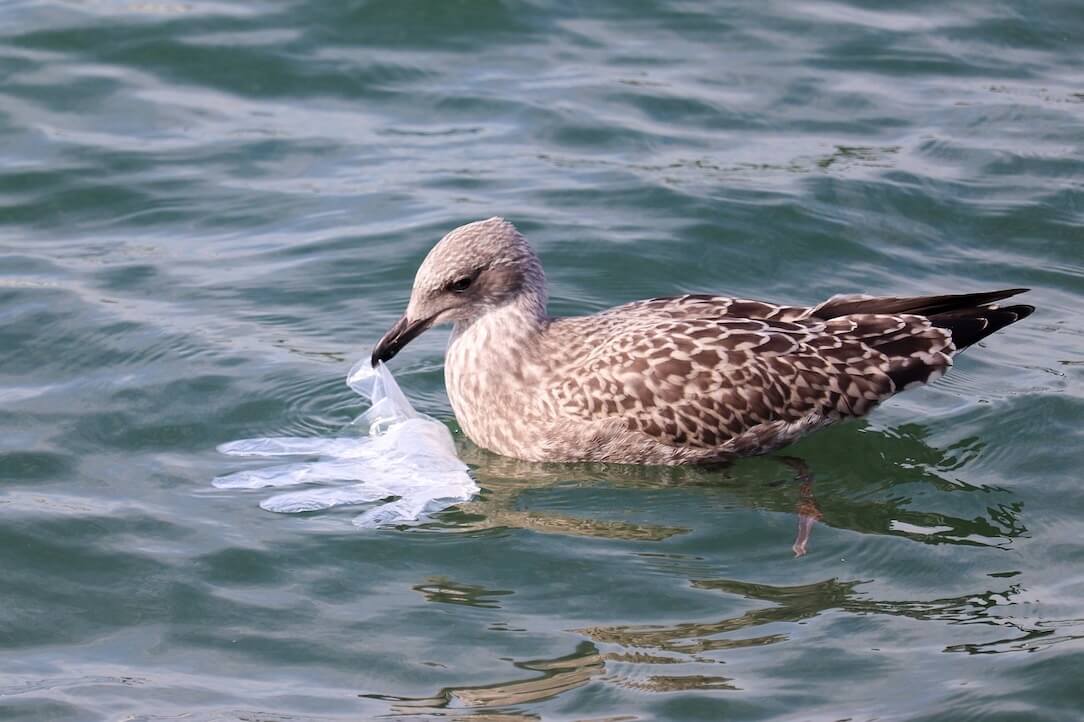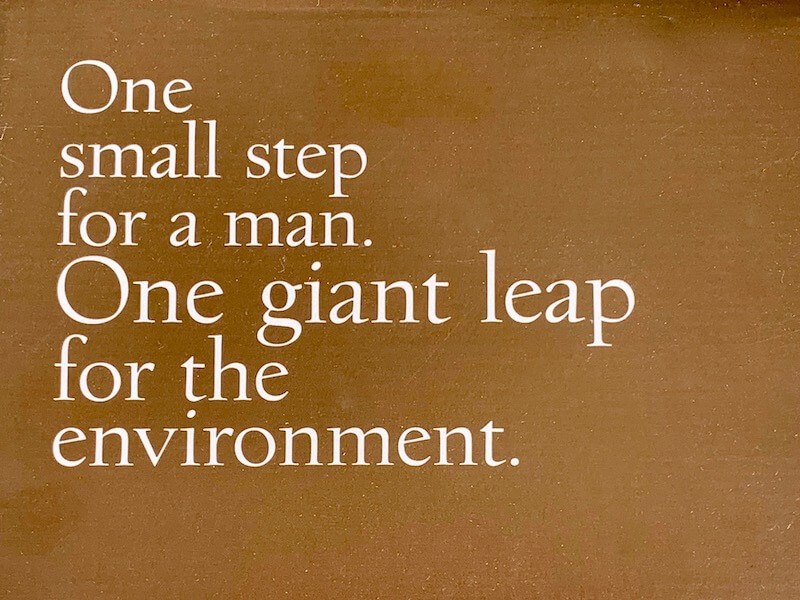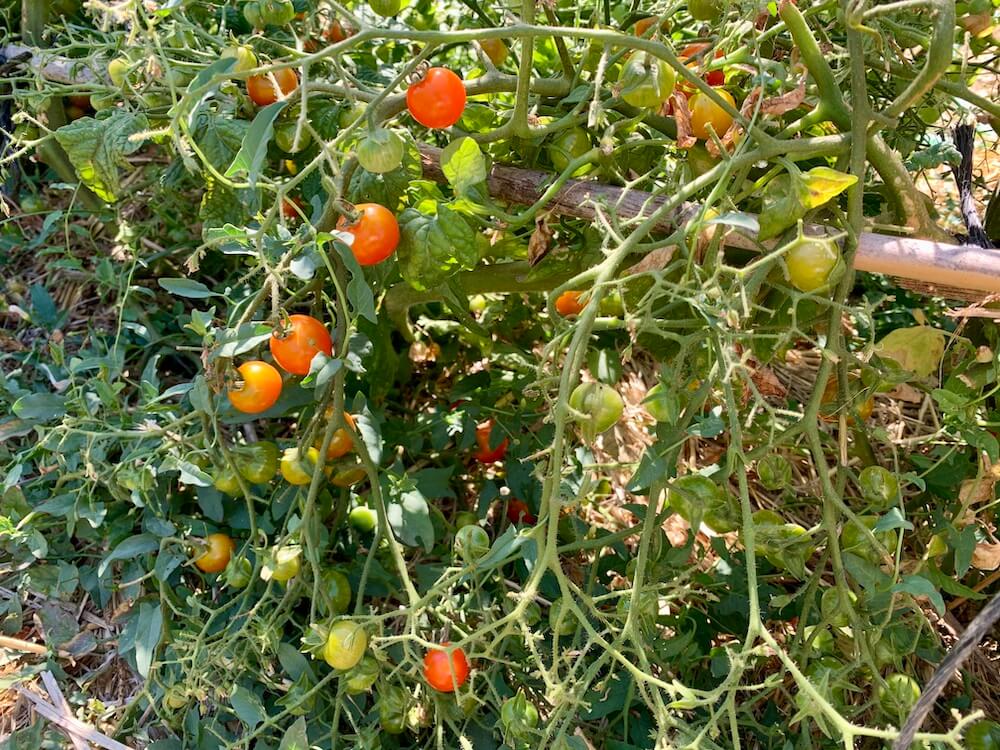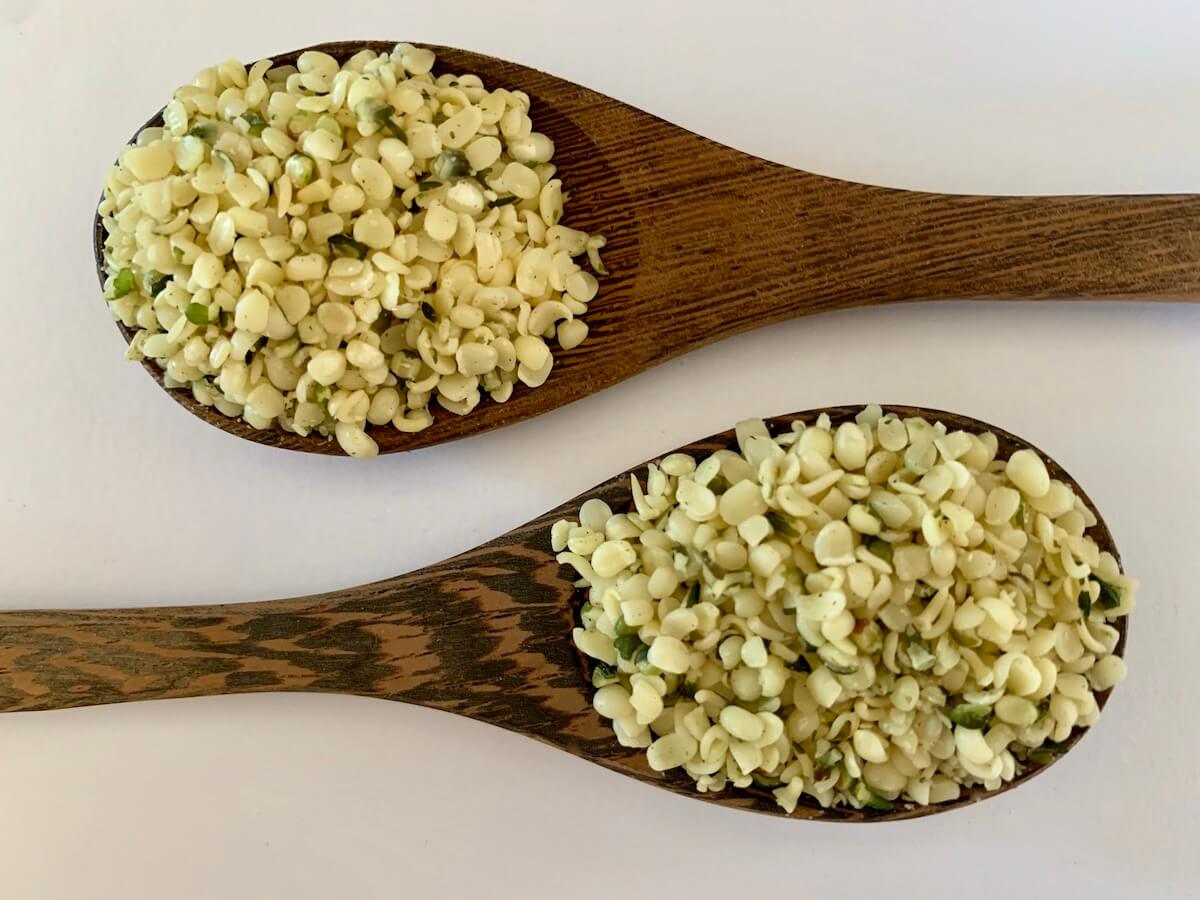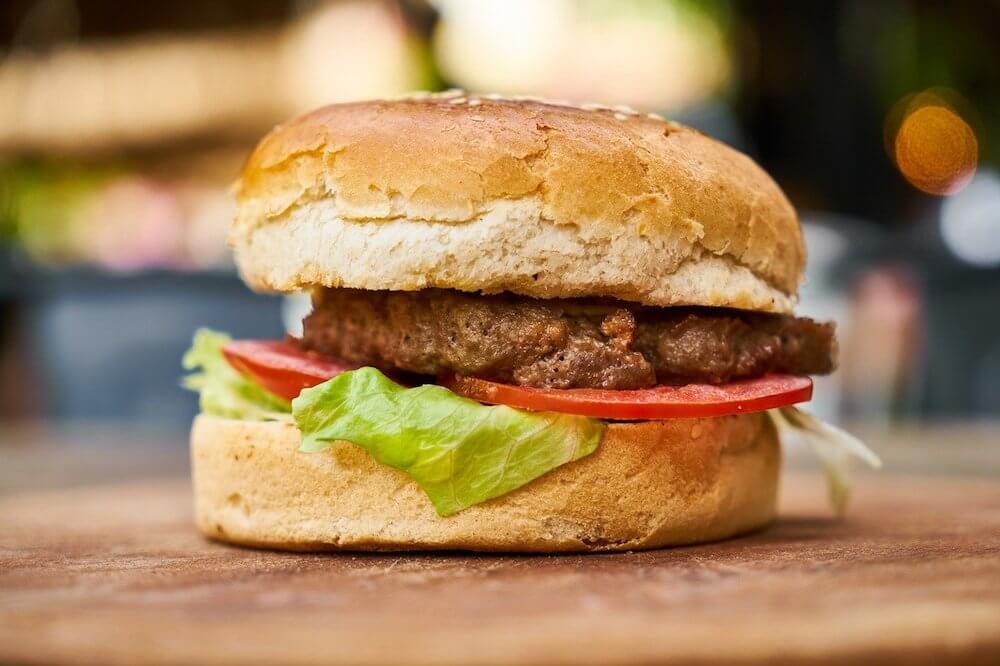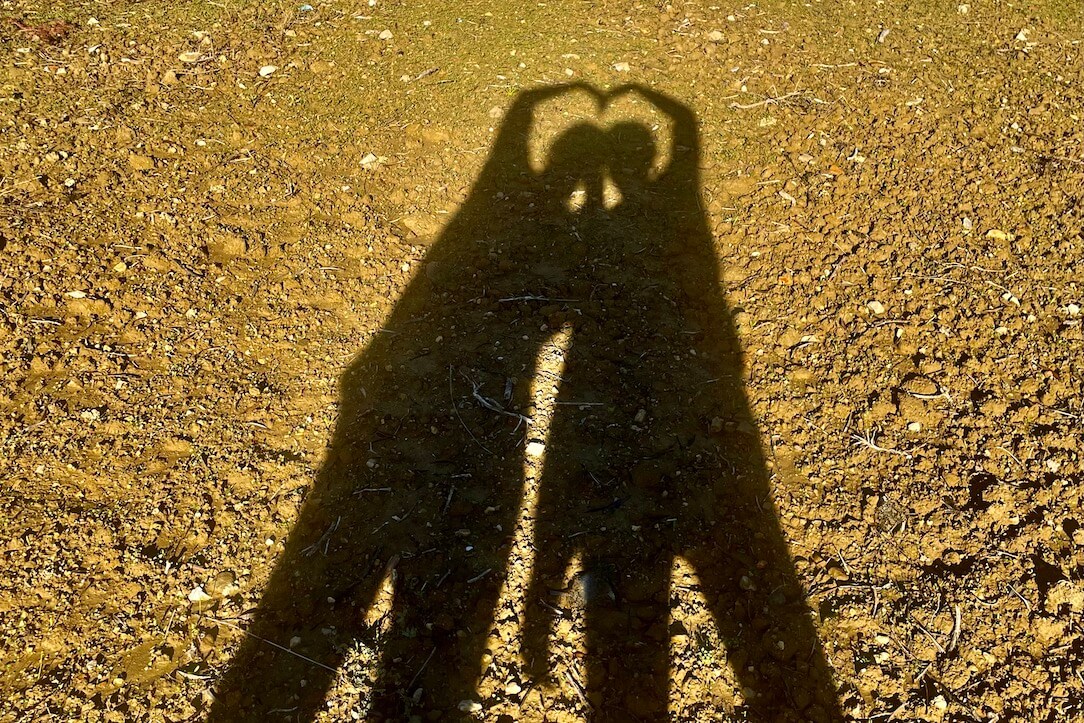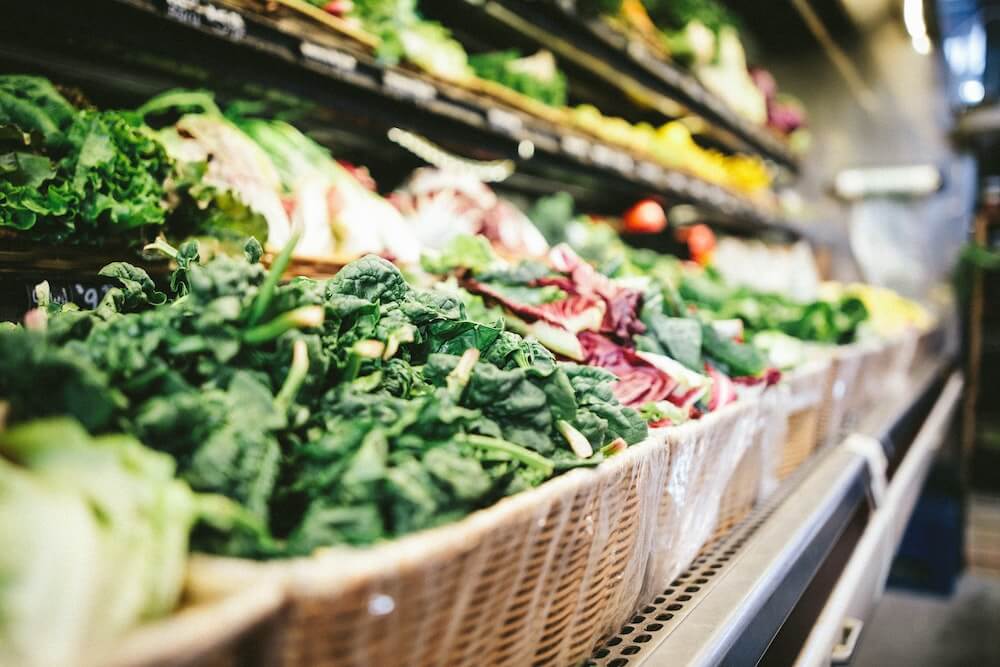These 20 tips for living with less plastic in your home are here to help you make a change to your daily impact with regard to plastic.
These days it’s almost impossible to escape plastic completely. It’s either in everything or wrapped around everything in our homes.
And changing our habits isn’t necessarily easy, and on top of that it’s complicated by the thought, Does this little change actually make any difference?
But just remember, it takes little steps to cover big ground. If a lot of people change their small habits the results can be momentous.
So never let that thought stop you from doing whatever you can to reduce your carbon footprint and help to save the wildlife.
We can choose changes which don’t have any negative impact on our lives whatsoever, yet over time can help to reduce the amount of waste plastic circulating in the environment.
At the very least, these new habits mean less household trash, and that can only be a good thing.
So in this article I’m sharing the ways which I’ve found doable to cut down on plastics in my home. Some ways may resonate more with you than others. Just do what you can, and keep reading about the consequences of plastic in our environment and in our oceans, as that’s one of the best motivations of all.
Feature image by Blandine JOANNIC on Pixabay
Why Try Living With Less Plastic in Your Home?
It’s scary to think, but it’s true that plastic just doesn’t go away.
So that means that every single thing that’s ever been made out of plastic still exists somewhere in the planet.
Sure, it can break down into little pieces and become micro-plastic which may get eaten by an animal by accident, or it can become mixed in with the soil with equally devastating consequences, but it never actually decomposes, or at least not for centuries.
According to Less Plastic, it’s estimated that plastic kills over 1 million marine birds and 100,000 marine animals per year.
So Here They Are: 21 Tips for Living With Less Plastic in Your Home
- Replace clothes liquid with washing nuts, soda bicarbonate and eucalyptus
- Use solid shampoo
- Switch your bottle of conditioner for solid conditioner
- Buy a bamboo toothbrush
- Go for toothpaste in a jar
- Stop using plastic packaged deodorants
- Consider using washable period panties or a menstrual cup
- Take your own shopping bags with you
- Buy refills of your staple foods
- Buy refillable washing up liquid (or use solid)
- Invest in a water filter instead of bottled water
- Choose vegetables that aren’t plastic wrapped whenever possible
- Opt for glass food storage containers
- Have your own refillable drinking bottle
- Use vegan food wraps instead of plastic wrap or silver foil
- Cut down or eliminate all the hundreds of cleaning products in your house.
- Buy biodegradable non-plastic washing up sponges
- Buy non-plastic or footwear made from recycled plastic
- If you’re in the habit of drinking takeaway coffee, take your own cup with you
- Buy second hand when you need something plastic (like a Christmas tree for example)
- Recycle!
#1 Use Washing Nuts with Soda Bicarbonate and Eucalyptus
I think this is my absolute favourite hack for reducing plastic. I seriously love using washing nuts for my clothes. I know some people complain because they say the nuts don’t make the clothes smell and they don’t leave the whites white.
The solution to those two comments is to use soda bicarbonate along with the nuts when washing your whites. Soda bicarbonate is an excellent whitener for your clothes.
And if you’re a fan of sweet scents on your washing, choose a little bottle of natural oil such as Eucalyptus and add 3 drops to the dispenser before doing your washing.
Why choose washing nuts?
For me it’s simple. Which do you prefer, a handful of nuts or a liquid full of chemicals which comes in a plastic bottle. Not only does that add to the contamination of the environment, but it also means more household garbage to get rid of each week.
We live in a scared-of-dirty mentality, but if you wash your clothes in warm water with soap nuts, what ‘dirt’ is there that needs all those chemicals to get rid of it?
#2 Use Solid Shampoo
My second favourite plastic hack is to use solid shampoo. Why would I want a plastic shampoo bottle kicking around my bathroom when solid shampoos are so perfect?
They’re easy to use, efficient and even better for travelling as you can take them anywhere with no restrictions.
If at first you don’t find one you like, just keep trying, as they do vary from brand to brand. In fact I’ve had some which would even put me off using solid shampoo if I didn’t know that there were better ones out there.
#3 Use Solid Conditioner
Finding a solid conditioner that suits your hair is more tricky than finding a solid shampoo. Solid conditioner also takes a bit of getting used to as it isn’t as obvious as its liquid counterpart.
#4 Use a Bamboo Toothbrush
This is an easy one. Buying a bamboo toothbrush is a cheap alternative to a plastic toothbrush so you can change it for a new one as often as you like.
The bulk packaging of things like bamboo toothbrushes is often made of plastic sadly, but at least it’s one packaging for hundreds of items rather than each toothbrush, so it still helps to reduce the plastic load.
#5 Buy Toothpaste in a Jar
If it’s available to you, you can buy your toothpaste in a jar. There are plenty of options, just not easily available yet.
#6 Use Deodorants With Non-Plastic Container
If you don’t need deodorant every day, you might find you’ve been using it just out of habit, in which case you can stop putting it on automatically.
Save your natural deodorant for those days when you have a meeting or something else which you know will make you sweat.
Likewise, you might find that using a solid deodorant does the job fine and you don’t need to buy a more powerful one at all.
Or why not have both and use a solid natural deodorant for milder days and a refillable natural deodorant for the days when you need something more powerful.
Either way you’ll be cutting down on the plastic in your home with this one simple hack.
#7 Consider Using Period Panties or a Menstrual Cup
Standard panty liners are made from plastic but it is possible to source non plastic ones made more environmentally friendly, or opt for washable period panties which are completely free from plastic and being non disposable will reduce overall household waste.
#8 Take Your Own Shopping Bags With You
Probably everybody already does this one but it’s worth mentioning all the same even if only as a reminder that it’s not such a bad thing that happened when they introduced charging money for shopping bags.
Nowadays I’d like to think we all make the effort to save bags and reuse them.
#9 Buy Refills for Your Staple Foods
Ok I’m gonna be jealous if you can fulfil this one because it’s one of the easier ways to cut down on packaging, but sadly for me, there aren’t any refil shops in my area.
By refill shop I mean a shop where you take a container and fill it up with cereal / beans / pasta etc.
If you have one in your area, why not check it out?
#10 Buy Refillable Washing Up Liquid or Use Solid
You can actually buy a bar of soap that’s intended for washing up dishes. You can also buy natural dishwashing liquid in a refillable bottle (if you have a shop near you that is).
One thing everybody can do is use less washing up liquid. Especially if you eat an oil free wfpb diet. It makes washing up so easy when all you’ve had on the plate is a delicious oil free meal of vegetables and chickpeas for example!
#11 Invest in a Water Filter
Stop buying bottled drinking water in plastic bottles. First because it’s a lot of plastic packaging and second because a lot of the bottled waters are actually just filtered tap water.
You’re better off installing a filter on your tap and using refillable bottles.
#12 Choose Vegetables that aren’t Wrapped in Plastic
It’s so easy to reach for the pre-packed carton of kiwi fruit or the plastic tub of cherry tomatoes, but if you have a choice, choose the loose fruit and vegetables and bring your own bags to put them in, or recycle last week’s bags.
Even better if you can go shopping at a local farmer’s market and buy your fruit and veg there.
But it has to be doable for you. Choose the small steps that you can include in your life to reduce the plastic in your home.
#13 Opt for Glass Food Storage Containers
When your old plastic Tupperware falls apart, renew it with glass alternatives. No point in throwing away your old ones until they’ve had it though.
#14 Have your Own Refillable Drinking Bottle
We’ve all seen the drinking bottles that are easily available everywhere now. Once you’ve got one you’ll wonder why you didn’t get one sooner!
They keep your water cool in hot weather and can be filled up from any drinking fountain on your travels. Definitely one of the better plastic hacks.
#15 Use Vegan Food Wraps Instead of Plastic Wrap or Silver foil
Another favourite of mine in my kitchen. I never buy cling-film but I do have silver foil in the drawer. 1 roll will last me a year at a guess (or more) because I don’t need to use it since discovering these perfect food covers which are completely vegan.
They’re similar to the bees’ wax food covers, but without the bees.
You just cover the dish and into the fridge it goes. When necessary, rinse under cold water and leave to drain dry.
#16 Cut Down on all the Cleaning Products You Use in Your House
Seriously, once you step away from all the chemical products you begin to realise how brainwashed we’ve become to buy into the commercial concept of cleaning with chemicals. In the average household you’ll find a (plastic) bottle for the bathroom surfaces, another for the kitchen surfaces, another for the floor, another for the WC, another for shine, another for glass etc.
It’s a serious addiction. When you take them away, you realise you don’t need all of them.
You can source ethical cleaning products or reduce the amount you use. For example, when cleaning the windows, the best and easiest way is to use 3 natural fibre cloths. The first one is damp for removing the grime, the second is for drying and the third is for polishing. Absolutely no need for chemicals.
The same with wood surfaces. Vinegar is a super cleaner for wooden tables etc. No need to buy extra stuff for cleaning wooden worktops.
In fact vinegar can be used as a general household cleaner too.
Give it a go saying adios to all the cleaning products and replacing them with one, more natural product.
#17 Buy Biodegradable Non-Plastic Washing Sponges
Did you know that your regular washing up sponge is made from plastic, and that every time you use it, micro plastic is being washed down the drain and will eventually end up in the sea?
Biodegradable sponges are more expensive, but they’re more environmentally friendly too.
#18 Buy Non-Plastic or Recycled Plastic Footwear
Yes, you might not have thought of this one but most footwear has plastic in it. If you choose a vegan make such as NAE vegan shoes you’re supporting the recycling of plastic and ethically made footwear.
#19 Take Your Own Coffee Cup
If you’re someone who drinks take-away coffee or tea on a regular basis, why not buy yourself a cup to refill instead of using disposable takeaway coffee cups which are lined with plastic?
#20 Buy Second Hand When You Need Something Plastic
With some things, maybe you want something that’s made of plastic, like some decorations for example, or a Christmas tree, consider buying it second hand rather than new.
#21 Recycle!
This one needs no introduction!
At least when we recycle we aren’t contaminating the sea and nature and the plastic can be put back into use.
Don’t skip it, do it!
Final Thoughts on Living with Less Plastic in Your Home
Every single thing we do is a choice. Maybe you choose to be vegan for the environment or because you can’t stand animal cruelty (have your seen the movie Cowspiracy or one of the other high-impact vegan movies?)
Or maybe you became vegan for your health after discovering just how health promoting a whole foods plant based diet really is.
Whatever your reasons, going vegan shows that you care. And when we care, there’s always more steps we can take to support our cause.
If you change one small habit, a new habit is formed, and it becomes an easy part of your new routine.
Just as most of us are aware of turning off the light when we don’t need it, so we can become aware of using less plastic in the home.
At the time of writing I haven’t been able to reduce plastic as much as I would like. There’s still plastic everywhere I look.
But it’s a step by step process, so don’t give up. Never give up! Just keep looking for new ways to improve.
If you have any questions about going vegan, take a look at these common vegan FAQ.
